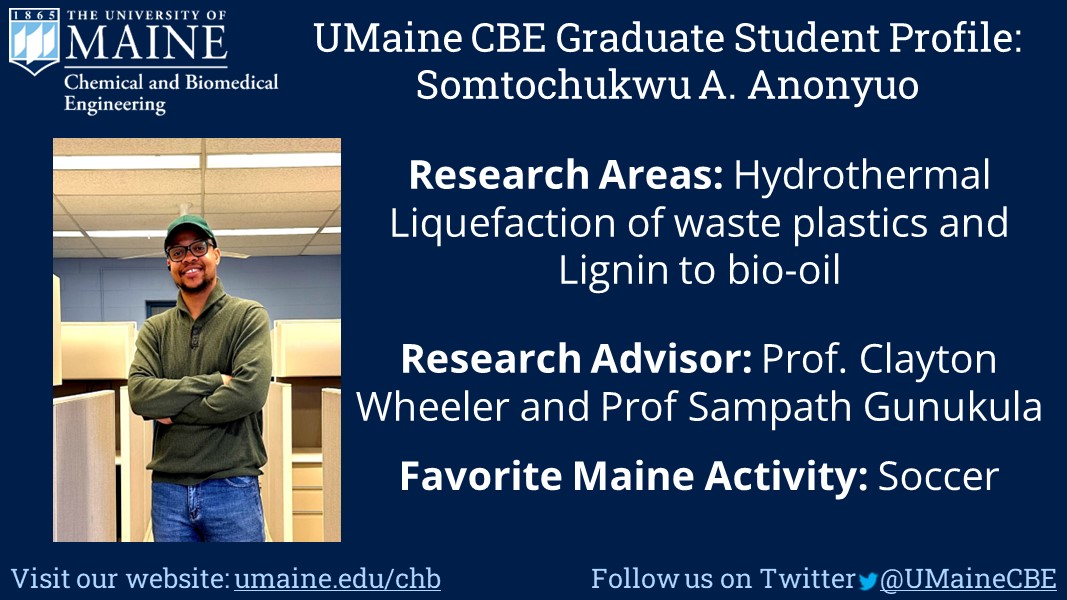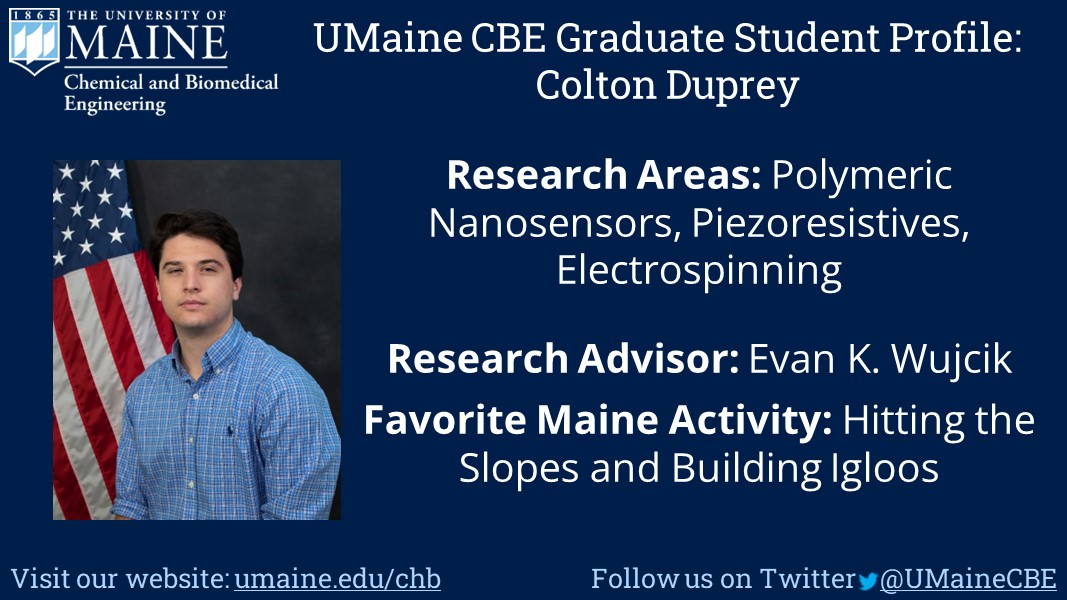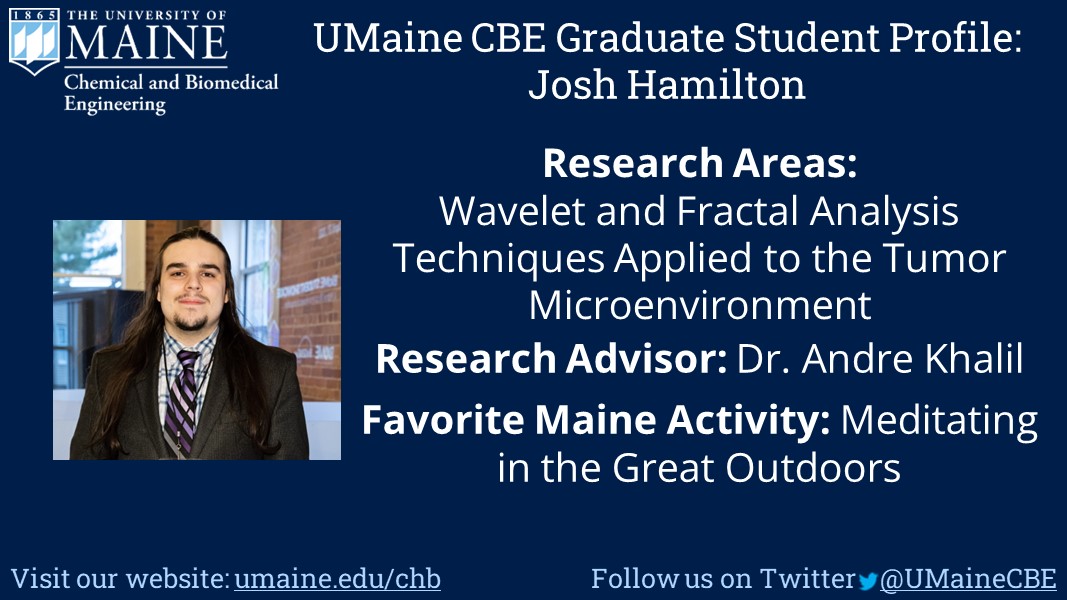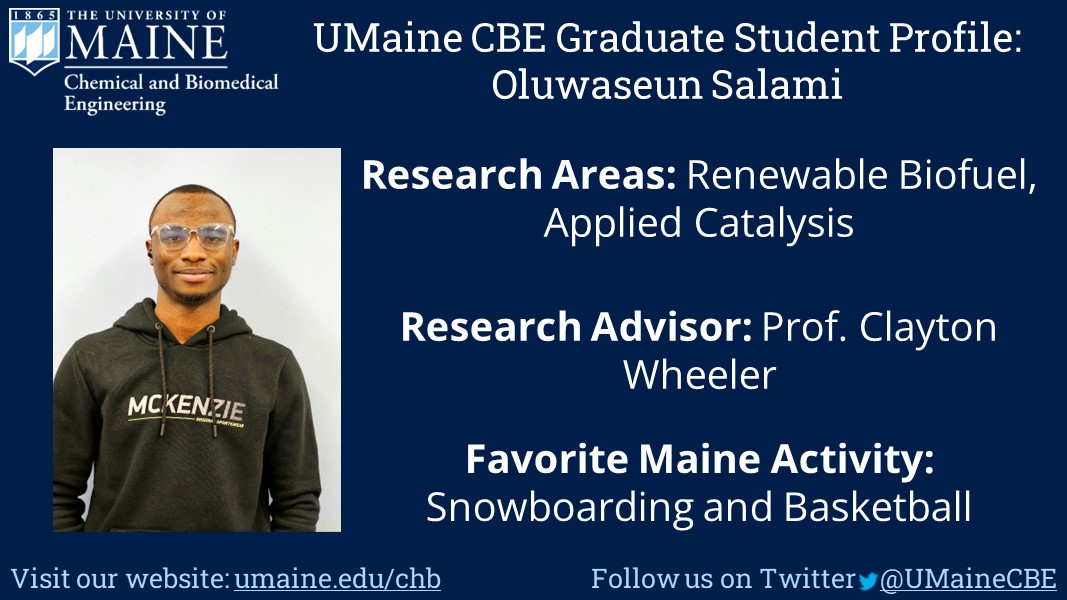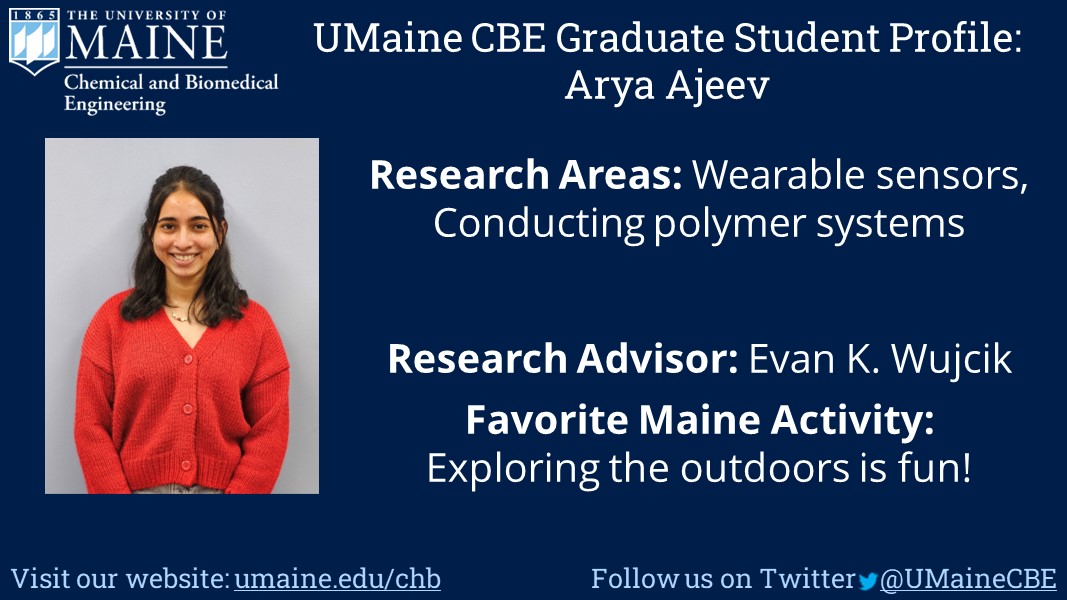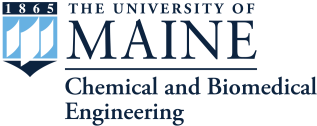
UMaine CBE Graduate Programs
The Department of Chemical and Biomedical Engineering has well-established graduate programs in chemical engineering (M.S. and Ph.D.) and biomedical engineering (M.S.). A Ph.D. in biomedical engineering is available through the Graduate School of Biomedical Sciences and Engineering. Students work closely with faculty in a tight-knit, collegial community on a diverse research portfolio funded by NSF, NIH, DoD, DoE, USDA, etc. (totaling approximately $7 million annually in recent years). Our graduate program is designed to prepare students for careers in research and development, both in industry and in academia centered around four core research areas:
- Sustainable Energy
- Advanced Materials
- Biomedical Imaging
- Biomedical Devices
We also offer a Paper Surface Science Graduate Program focused on our local paper industry.
Graduate Program Learning Objectives (PLO) for Chemical and Biomedical Engineering
Our program learning objectives are:
The Masters Programs students are designed to produce graduates who:
- Are able to apply the fundamentals of engineering, science and mathematics to technical problems and tasks. (GSLG #1: Understand, interpret, shape, and augment the knowledge base.)
- Can design and deliver effective presentations of engineering results in written and oral formats. (GSLG #2: Share disciplinary expertise openly, effectively, and accurately.)
- Are able to apply their engineering knowledge to critically evaluate relevant literature and new technologies or systems. (GSLG #1: Understand, interpret, shape, and augment the knowledge base.)
- Are able to identify ethical issues related to research in engineering fields. (GSLG#3 Demonstrate responsible and ethical practice.)
The PhD Program is designed to produce graduates who additionally will be able to:
- From the literature, students are able to understand and articulate the state of the art on specific topics. (GSLG #1: Understand, interpret, shape, and augment the knowledge base.)
- Organize, develop, and carry out a research plan. (GSLG #1: Understand, interpret, shape, and augment the knowledge base.)

